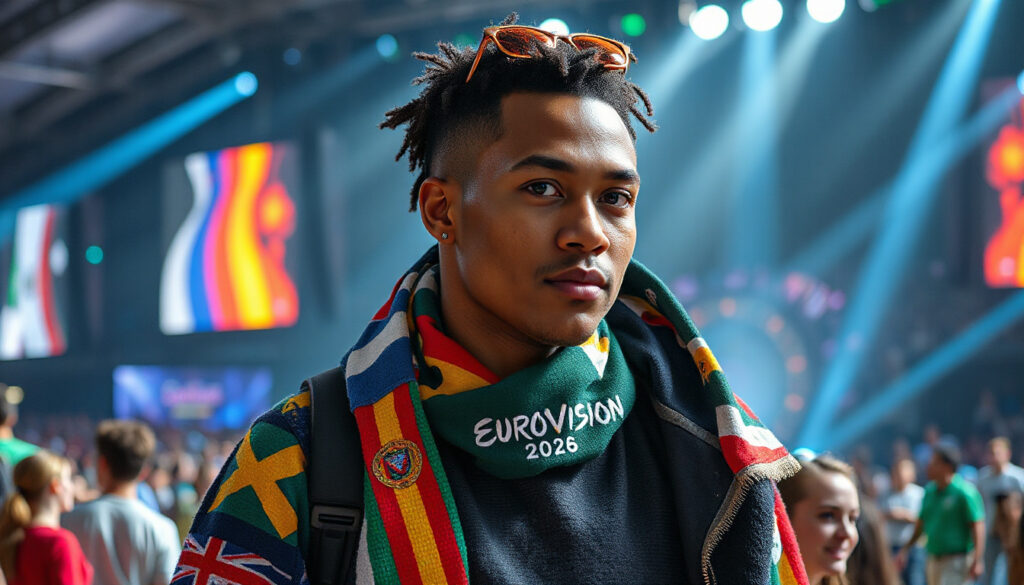Every year, the Eurovision Song Contest draws millions of viewers from Europe and beyond. The contest shows many music types, languages, and cultures. Under the bright lights, voting trends appear. These trends show that votes form not only from the music but also from thoughts about gender. With the 2026 contest coming, we see these trends shape the event.

What Shapes Eurovision Voting?
Eurovision voting works with two parts. One part comes from a jury of experts and the other comes from the public. Each part fills half the score. The experts look at singing, song writing, and stage look. The public votes by phone, SMS, or app. This mix makes sure that both expert ideas and public likes count.
Looking at phone votes since 2016 shows steady gender trends. These trends show which acts win votes and which groups face hidden bias.
Key Findings About Gender Preferences in Eurovision Voting
-
Male-Dominated Televote Winners: Since 2016, phone votes have gone to male acts about 62.5% of the time. Groups with only men often win public votes. Acts with only women win very rarely.
-
All-Female Winners Are the Exception: In 2018, Netta won for Israel as the only all-female act in recent years. Her unique style and stage look won many votes and broke old patterns.
-
Mixed-Gender Groups Have Moderate Success: Acts with both men and women win about 25% of phone votes. This mix may attract a wider range of people with its clear stage presence.
-
Female Performers Often Underrepresented in Top Ranks: In the top five phone vote spots, only about 47.5% include any women. Women also find fewer top spots than men.
-
Point Gaps Between Male and Female Vocalists: On average, the best male singers score nearly 60 points more than the best female singers. This gap may show that some choices are based on viewer bias or on the style of the performance.
Why Are These Gender Differences Present?
Multiple ideas may help explain why male acts win more phone votes:
-
Musical Style and Presentation: Winners of phone votes often show bold and clear stage acts. Many men have found more ways to use this style in the contest.
-
Audience Demographics and Preferences: The many people watching the contest may have different ideas about gender and song style. These ideas shape how votes come in.
-
Representation in Entries: Some years bring more acts led by men. More high-quality acts by women may change the results in time.
-
Support Structures: Men may sometimes find it easier to get industry support, production help, or good promotion that brings more votes.
What This Means for Eurovision 2026 and Beyond
These trends show an ongoing change and a need to grant equal chance to all. Teams and producers may view these ideas when they choose acts and plan the show:
-
Encouraging Diverse Acts: Growing the number of acts with women and mixed groups may balance votes and show more talent.
-
Unique and Open Performances: Pushing for clear self-expression in any gender can attract fans who want new ideas.
-
Awareness and Learning: Knowing that hidden bias can affect votes may lead to choices that are fairer for everyone.
How the Eurovision Voting System Supports Fair Outcomes
Eurovision sets rules to keep the voting fair:
-
Independent Juries: Experts chosen for the jury meet strong rules and aim for a mix that includes both genders.
-
Secure Voting Processes: Both jury votes and phone votes are watched carefully. This check stops wrongdoings and keeps the vote clean.
-
Multiple Voting Options: Voting by telephone, SMS, or app makes it easy for all to join in. There is a limit for each viewer so that the process stays fair.
Seeing gender matters in Eurovision votes is not about blaming anyone. It shows a trend that affects the final results. It lets us talk about ways music contests mirror changes and views in society.
Takeaways for Fans and Future Participants
-
Fans can enjoy a wider range of acts by looking beyond common male winners. They can also support women and non-binary artists with every vote.
-
Contestants and Delegations should use real self-expression and smart staging to meet voters of all genders.
-
Broadcasters might try new ways of picking acts that bring a good mix of genders and spark viewer fun.
Looking Ahead to Eurovision 2026
As the contest sets its stage in Vienna in 2026, the challenge remains high for both artists and viewers. The shifts in gender vote trends show a chance for more varied acts to shine, if they get proper backing. The true charm of Eurovision lies in its power to unite people with music. Knowing more about vote habits helps everyone see that promise.
Ready to engage with Eurovision 2026? Follow your nation’s contest updates and back your chosen acts of every gender by voting wisely during the show. Watch performances, join fan clubs, and help keep Eurovision a true mix of musical talent from Europe and beyond.







